
Business environment in Latvia
The economy of Latvia is a free market economy, it is regulated by appropriate laws, protecting commercial rights, trademarks and investments;
The requirements of the European Union are included in laws of Latvia;
The requirements of the European Union are included in laws of Latvia;
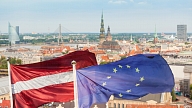
Latvian tax system expecting changes
The Latvian tax system has not generally changed, but from time to time the government decides on changes in some taxes when drafting next year’s budget. In order to end this practice, the government has resolved to prepare and introduce a new tax policy – transfer the tax burden from laborforce to capital.

A year marked by growth on the Baltic real estate market
In the first ten months of 2016, the number of transactions on the Baltic real estate market rose by 6% against the respective period a year before. Given the acquisition and merger (A&M) trends in the Baltics over the past three years, the year of 2016 was closed with a comparatively high number of M&A transactions on the whole, the authors of Prudentia M&A Folio report have concluded.
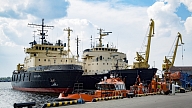
Despite challenges, exporters hold their ground
In 2016, Latvia exported EUR 10.332 billion worth of goods to foreign countries, down 0.3% or EUR 30.9 million from 2015, while imports dropped 1.7% or EUR 212.9 million to EUR 12.279 billion. For exporters, last year was full of challenges, considering falling prices for raw materials, the decline of the Russian ruble and the British pound sterling as well as reduction of exports in certain categories of goods related to re-export.
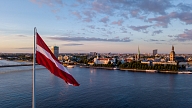
Investors from 135 countries invest in Latvia
Investors from 135 countries made investments in Latvian companies last year. At the end of 2016, there were 29,273 companies registered in Latvia that were fully or partly owned by foreigners. Altogether 29,692 foreigners hold shares in Latvian companies.

Latvian foreign trade sees a decline
Shortly after the economic crisis, exports started to grow at a fast rate and became a driving force of Latvia’s economic growth, but the growth subsided soon and even turned into a slight decrease in 2016. On the whole, last year was negative for Latvia’s foreign trade as export volumes decreased by 0.3% and import volumes contracted a bit more, by 1.7%. Economists were fairly optimistic about prospects for Latvia’s foreign trade growth last year, but this year there are objective conditions for improving these results.

Situation in Latvian job market improving gradually
The number of employed persons in Latvia was 895,000 or 61.8% of the population aged 15-74 years in the third quarter of 2016The registered unemployment level was at 9.5% of the economically active population in the third quarter of 2016Unemployment in 2020 is planned at 8.2% (the Finance Ministry projects)

Latvian foreign trade sees a decline
Shortly after the economic crisis, exports started to grow at a fast rate and became a driving force of Latvia’s economic growth, but the growth subsided soon and even turned into a slight decrease in 2016

Latvia’s economy – from exports to domestic consumption
2016 was not the most successful year for Latvia’s economy, mostly due to uncertainty in external markets. Even though at the beginning of the year Latvia’s growth figures were projected at around 3%, in reality Latvia’s GDP increased by only 1.6% last year.
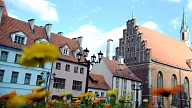
Economics Minister Arvils Ašeradens’ address to Baltic Export publication
Latvia has achieved remarkable economic progress in dealing with the impact of the global financial crisis. Macroeconomic disproportions have been significantly reduced, Latvia’s current account deficit and public finances are stable, and its government debt is among the lowest in the European Union (EU).
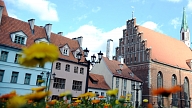
Latvian stock market – unused potential for profit
Latvia’s stock market, despite its status as the smallest in the Baltic States, has basically all that is necessary for a successful profit-making venture with stocks from a variety of companies. Even though there are a relatively small number of companies listing their stocks, there is a point of view that more companies should utilize the potential the stock market can offer them.
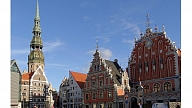
Foreign investments in Latvia
Foreign direct investment in equity, reinvested earnings and other forms of capital has grown rapidly since Latvia regained its independence in 1991 until the rates of growth slowed because of the financial crisis. However, in the first nine months of 2011, the volume of foreign direct investment was almost three times higher than the total foreign direct investments in all of 2010. The lion’s share came from Russia and the CIS, facilitated by changes in the Law on Immigration, which allowed for

Business culture and ethics Latvia
However, when greeting a Latvian, you just say the word lab-dien, which means "good afternoon" you will see the shine in their grayish blue eyes! Showing respect towards the Latvian language, which is one of two Baltic languages from Indo-European language branch, which is still alive, will open the heart of the most reserved Latvian.
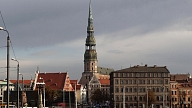
Stock Market in Latvia
The Latvian securities market, though it is the smallest in the Baltic countries, nonetheless has the preconditions for successful, profitable trading with the shares of various companies
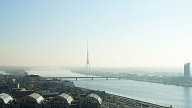
Business environment in Latvia
Latvia has set ambitious goals: in two years, it will be among the most competitive countries in the world with a favorable business environment and competitive taxes on labor in the Baltic region.

Real estate market
Even though the real estate market has not recovered from when the bubble burst, there have been some positive signs over the past year. Most of the talk about the real estate market is about stabilization, with stagnation mentioned less often.
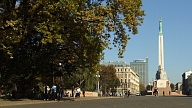
Latvian Labor Market
The level of unemployment and its structure
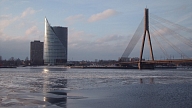
External trade of Latvia
Latvia’s export of goods in 2011 showed the highest volumes in six years and one of the fastest export growth rates in the European Union (EU) for the second year in a row. Experts compare this to a fast sprint that will get even faster in 2012.
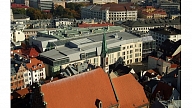
Tax System of Latvia
The tax system of Latvia is not the simplest one, however, it cannot be considered as very complicated in comparison to the old EU Member States. Problems hitherto have been created by protracted changeability in the tax system, which the government has promised not to allow in the.
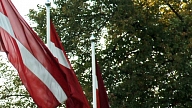
About Latvia
Republic of Latvia is located in the north-eastern Europe. It is washed by the Baltic Sea and the Gulf of Riga. In the north Latvia borders Estonia, in the east – Russia, in the south-east – Byelorussia, and in the south – Lithuania. The total length of the land border is1368 km, and the sea border – 498 km. The capital of Latvia – Riga is the largest city in the Baltic States.
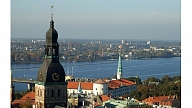
Economy of Latvia
It took a little less than five years for Latvia to move from being the fastest growing economy in the EU to the fastest shrinking and then back to fastest growth again. This time the drivers of growth are different.

Business environment in Lithuania
There were approximately 104,000 enterprises in Lithuania in early 2017.
Every year, the government of Lithuania strives to improve the country’s business environment; as a result, Lithuania regularly moves up in international ratings.
Every year, the government of Lithuania strives to improve the country’s business environment; as a result, Lithuania regularly moves up in international ratings.
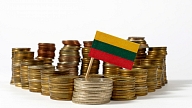
Lithuanian tax system is not changing
The Lithuanian tax system is basically made up of direct and indirect taxes, and they have basically not changed in the past years. Lithuania’s main tax types are personal income tax, corporate tax, value added (VAT), excise tax, property tax, land tax, as well as tax on gambling and lotteries.

A year marked by growth on the Baltic real estate market
In the first ten months of 2016, the number of transactions on the Baltic real estate market rose by 6% against the respective period a year before. Given the acquisition and merger (A&M) trends in the Baltics over the past three years, the year of 2016 was closed with a comparatively high number of M&A transactions on the whole, the authors of Prudentia M&A Folio report have concluded.

Another record-breaking year
2016 was another record-breaking year for the foreign investment promotion agency Investuok Lietuvoje (Invest Lithuania) as it attracted EUR 144 million in foreign direct investment. Large international companies that started doing business in Lithuania include Intersurgical Company (medical devices for respiratory support, 1,920 employees), Western Union (IT, accounting, 150 employees) and Mars (manufacturing, 750 employees).
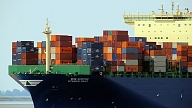
Lithuanian exports decline at a slower rate than imports
Lithuanian export growth picked up right after the crisis when, like in other Baltic countries, they even exceeded pre-crisis figures. Yet by 2013 Lithuania’s foreign trade volumes started to stagnate and event decreased in 2016, largely because of a high degree of uncertainty on international markets. Notwithstanding last year’s negative results, experts project Lithuania’s foreign trade data to improve.

Unemployment drops fast in Lithuania
Over the past several years the unemployment level in Lithuania has seen a sharp decline that slowed down in 2015 but picked up the pace again in 2016.
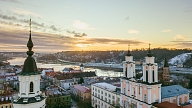
Lithuania’s economy posts strongest growth
Compared to the other Baltic countries, Lithuania posted relatively poor results in regards to foreign trade in 2016, however, this did not hamper Lithuania in registering the strongest economic growth amongst the three Baltic countries.
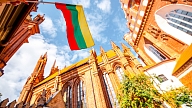
Lithuanian stock market
Of the Baltic stock exchanges, the Lithuanian Stock Exchange had the largest number of companies listed in 2016. Half of the companies listed at OMX Vilnius Exchange in 2016 qualified for inclusion on the Official list, while the other half were included on the Baltic Second list.
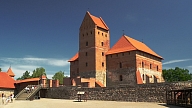
Stock Market in Lithuania
Shares of the largest number of companies – 33 companies – were traded on the stock market of Lithuania.

Lithuanian business ethic
Lithuanian business ethic is not much different from their neighbours’ in Eastern Europe. However, as academics despite the fast-proceeding process of globalisation still keep producing books on national character it must have at least some impact on all spheres of life, business including.
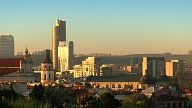
Business environment in Lithuania
In the guidelines for Lithuania’s economic development, no branch of industry has been given special priority, however, a strategic decision was taken to promote innovation, investment in modern technologies and industries that create high added value.

Real estate market of Lithuania
Despite the development of the Lithuanian commercial property market was sluggish in 2011, there was a slight price increase.
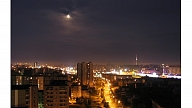
Foreign direct investment
Lithuania is a country that is an example of the successful foreign direct investment attraction according to the annual review Global FDI Outlook Report 2011 by the European Bank for Reconstruction and Development prepared in cooperation with the FDI Intelligence of The Financial Times.
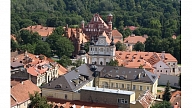
External trade of Lithuania
The export of goods from Lithuania as befits the largest Baltic country, significantly exceeds that of its immediate neighbors and, like its neighbors, has show record high rates of growth.

About Lithuania
Lithuania is located on the eastern shore of the Baltic Sea, and it is the largest among three Baltic States in respect of population, territory and economy. Lithuania borders Latvia in the north, Byelorussia in the south-east, Poland in the south and Kaliningrad Region belonging to Russia in the south-west.

Lithuanian tax system
Lithuania, similarly to neighboring country Latvia, struggling with state budget deficit, started to undertake tax changes in 2012.
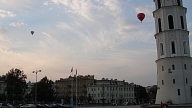
Economy of Lithuania
Lithuania is the largest of the Baltic States in terms of territory, number of inhabitants and size of economy. It was one of the fastest growing economies in Europe before the global crisis of 2008, but in 2011 it experienced one of the highest GDP growth in European Union.

Business Environment in Estonia
There were 117,398 active enterprises in Estonia in 2016
Small enterprises that employ one to nine people make up more than 80% of all enterprises
Small enterprises that employ one to nine people make up more than 80% of all enterprises
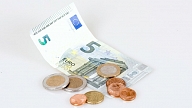
Estonian Tax System
In the International Tax Competitiveness Index, the Estonian tax system has been ranked the most competitive in the world for the past couple years. The Estonian government also points out that the country’s tax system is sustainable and socially and regionally balanced.

A year marked by growth on the Baltic real estate market
In the first ten months of 2016, the number of transactions on the Baltic real estate market rose by 6% against the respective period a year before. Given the acquisition and merger (A&M) trends in the Baltics over the past three years, the year of 2016 was closed with a comparatively high number of M&A transactions on the whole, the authors of Prudentia M&A Folio report have concluded.
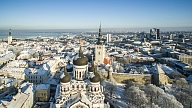
Largest industrial investment in country's history
A group of investors operating in the Estonian timber industry are planning to set up a wood refining plant in Estonia worth EUR one billion by 2022. The preparations for building the plant are to begin in early 2017 and might take up to three years.

Estonian foreign trade recovering
After a relatively serious drop in foreign trade in 2015. Estonian export and import figures showed fairly decent growth in 2016 - each rising by 3%. Estonia therefore was the only Baltic state that managed to increase its foreign trade amid external economic and social volatility last year.
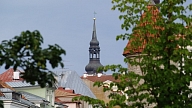
Estonian Stock Market
Although the number of companies listed at the Tallinn Stock Exchange (OMX Tallinn) is the smallest, practically all of them are included on the Main List.
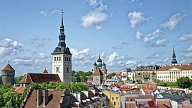
Estonia registers slowest growth since economic crisis
Estonia, seen as an excellent example of a balanced economy, has been stagnating the past several years. Last year was no different, as economic growth was projected at over 2%, but in reality was below 2%. Despite the slow growth, Estonia remains an attractive country, which has been noticed by the World Bank in its annual Doing Business 2017 ranking, as it has jumped up to 12th place amongst 189 countries around the world.
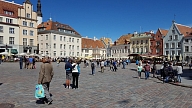
Employment level grows in Estonia
The Estonian job market experienced considerable transition in the early 1990s, when the country regained independence and the political and economic systems were revamped. Legal obligations for employment in Estonia are regulated by legislation, including the Estonian Constitution, agreements with the International Labor Organization, the Employment Contracts Act as well as other legislation passed by the Estonian government and ministries on employees’ rights and obligations.
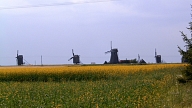
Stock Market in Estonia
The Estonian stock market works by the principle – fewer in number, but more good companies.

Business ethics in Estonia
Estonian business ethics and Estonian culture in general is a mixture deriving from the country's geopolitical stance as well as from its history. Estonians like to be considered a part of Scandinavia and Northern Europe rather than one of the Baltic countries or, god forbid, a former Soviet republic.
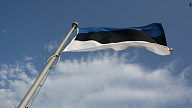
Business environment in Estonia
In general, free enterprise and trade, as in other EU countries, characterize the business environment in Estonia.
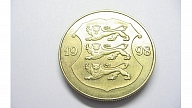
Foreign investments in Estonia
In a manner similar to other small-scale open economies, Estonia needs a constant flow of foreign investments in order to maintain the expansion of its economy.

External trade of Estonia
The volume of Estonia’s imports and exports in 2011 reached record levels unseen since Estonia joined the European Union in 2004.
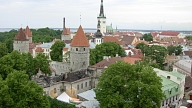
Real estate market
Estonia’s property market that crash-landed in 2008 along with the worldwide credit crunch after becoming overheated in
2005–2007, showed first signs of recovery in 2011.

Labour market of Estonia
Estonia’s labour market has recovered quite rapidly from the recent recession in 2011. While the unemployment level is still higher than in the boom years 2006–2007, employment has increased fast mostly due to a bloom in exporting industry.

About Estonia
Estonia – the smallest Baltic State and one of the smallest European Union member-states – is located in the northern Europe, on the eastern shore of the Baltic Sea. In the east Estonia borders Russia, in the south – Latvia. Estonia has also a sea border with Finland in the north, in the Gulf of Finland, and Sweden in the west, in the Baltic Sea.
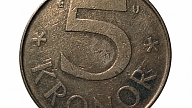
Estonian tax system
The Estonian taxation system has some advantages for the foreign investor.
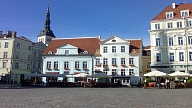
Economy of Estonia
Estonia is considered one of the most successful examples of fiscal policy and of how to manage the development of a small economy.
